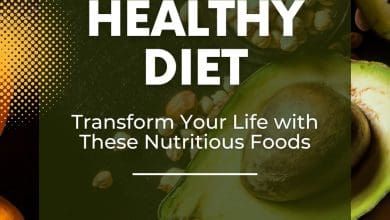Vitamins And Their Role In The Body
What are vitamins?
Vitamins are low-molecular organic substances necessary for the normal functioning of the body. They are involved in the body’s metabolism. They participate in the processes of growth and development of the body and maintain the biochemical balance in adults. Vitamins have pronounced biological activity in very small amounts. They are not a source of energy or “building material” for cells, but they influence these processes. They participate in various chemical reactions at the cellular level by forming specific enzymes with a specific purpose. After the end of this reaction, another enzyme is produced, which recycles the remains of the previous one. In order to synthesize enzymes and maintain their proper functioning, the body constantly needs vitamins and minerals. They activate and regulate the functions of enzymes and hormones in the body. Vitamins are also necessary for the successful release of energy from food.
Insufficient intake of vitamins leads to disorders of the physiological processes and functions of the body. Deficiency of vitamins damages health, immunity decreases and there is a tendency to develop hypovitaminosis conditions and diseases. With insufficient intake of vitamins, insufficient nutrition, and dietary regimes, as well as inadequate absorption of vitamins in diseases affecting the intestines, deficiency states develop, leading to diseases of the body. Vitamins are of significant benefit in the presence of disorders of various physiological processes.
There are different vitamins and vitamin-like substances. The body needs all of them since each is involved in different metabolic processes in the body, and one vitamin cannot be compensated by another or another chemical substance. Vitamins take part in the formation of bones and tissues, and the conversion of fats, carbohydrates, and proteins.
What are the types of vitamins?
Two groups of vitamins are recognized: water- and fat-soluble. Their grouping explains their specific properties – how they are transported and stored in the body.
Fat-soluble vitamins dissolve in fat, not water, hence the name of the group. They are transported in the body through the lipid compounds in the blood. They are stored in the fatty tissues of the body and the liver, so it is not necessary to take them daily. Fat-soluble vitamins are A, D, E, and K.
Water-soluble vitamins dissolve in water. This determines their rapid excretion from the body through urine (they cannot be stored in the body in significant quantities) and the need for their constant supply. Water-soluble vitamins are all B vitamins – B1, B2, B3 (PP), B5, B6, B9, B12, H and vitamin C.
Can be overdosed?
Once in the body, each vitamin binds to a specific protein. Thus, an active enzyme is formed, which enters into the regulation of physiological processes. Specialized proteins have a saturation threshold. Once it is achieved, the excess amount of the corresponding vitamin begins to accumulate in the body or is removed through the urine.
Because fat-soluble vitamins are transported through lipid compounds in the blood and stored in fat tissues, regular intake over a long period of time every day can build up in the body to toxic levels. Above this level, the vitamin begins to harm the body. In case of excessive intake, a state of hypervitaminosis is reached with the manifestation of characteristic complaints. That is why it is necessary to alternate periods of intake of vitamins A and E with periods of rest. It is recommended that they be taken when needed, in the recommended prophylactic doses, and in case of deficiency conditions, in the therapeutic doses prescribed by a doctor.
Vitamin D is synthesized in the skin under the influence of the sun’s ultraviolet rays. It is usually prescribed in infants, in deficiency of sunlight, for example in subpolar and polar latitudes during the winter season, as well as in deficiency states.
Vitamin K is also synthesized by the body in the amount it needs, so its intake in the form of a supplement is not necessary, except for diseases that lead to its deficiency, at the discretion of a doctor. It is related to blood coagulation and reduces the permeability of vessel walls.
Due to the properties of water-soluble vitamins and their rapid removal from the body, this group of vitamins requires a daily supply.
Water-soluble vitamins are easily destroyed during storage and culinary processing of food products. Taking into account the fact that the content of vitamins and minerals in fruits and vegetables has significantly decreased in recent decades, food cannot provide the necessary amount for the body. To maintain a constant balance of water-soluble vitamins, it is necessary to take them from additional sources, in the form of tablets or syrups.
These vitamins cannot be overdosed, the body uses the amounts it needs and discards the excess. However, it is not desirable to overdo the doses, as there will be no benefit from them – any dose in excess of what is needed will be excreted from the body, and excessive amounts can strain the kidneys. Therefore, they should not be taken more than the recommended doses for the day.
How are vitamins obtained?
The body synthesizes very small amounts of vitamins – vitamins D, K, and B3. Most of the vitamins are obtained through food. They are provided mainly through the consumption of fresh fruits and vegetables, juices, cereal, and leguminous crops and their products, milk and dairy products, fish, liver, meat, eggs, brewer’s yeast, and nuts.
In order to ensure the necessary amount of vitamins for the body, however, a rich variety of the diet and consumed products is necessary. The fact is that, even if this condition is fulfilled, such amounts of food cannot be taken to provide the necessary daily needs of the body for all vitamins. The fact that with nutrition, due to a number of reasons, such as the seasonality of products, the dependence of their distribution on climatic and geographical conditions, peculiarities of traditional national cuisine, improper nutrition, and economic reasons, the body does not regularly receive the required amounts of all vitamins, can lead to a deficiency of some of them, especially in cases of exhaustion, stress conditions, polluted environment, diseases, which necessitates intake from additional sources.
Which vitamins are most important?
All vitamins are important for the body, as each is involved in a very specific metabolic process and cannot be replaced. However, which vitamins are the most important to take, taking into account their specific characteristics – whether or not they are synthesized by the body, whether or not they accumulate in the body, how often and in what quantities they are found in food products typical of the traditional national diet, the seasons, health and emotional state?
Vitamins of group B are organic substances with a different chemical structure. The body cannot function without them. With their participation, he transforms the received food into energy and regulates cellular processes. B vitamins are biologically active in low concentration. They participate in carbohydrate, protein, and lipid metabolism, as well as in the synthesis of nucleic acids:
B1 (thiamine, aneurin) is involved in the metabolism of carbohydrates, proteins and fats.
B2 (riboflavin, lactoflavin) and B3 (nicotinamide, niacin ) – in cellular oxidation-reduction processes.
B3 (vitamin PP, niacin, nicotinic acid ) – participates in the transport of hydrogen and in oxidation-reduction processes, lowers cholesterol and triglyceride levels.
B5 (pantothenic acid ) – participates in the synthesis of coenzyme A, which is involved in all chemical reactions of the cell.
B6 (pyridoxine, adermin ) – participates in the exchange of amino acids and fats.
B9 (folic acid, folacin ) – in the exchange of amino acids, stimulates and regulates blood formation and growth.
B12 (cyanocobalamin ) – in the exchange of nucleic acids and in the construction of nerve cells, regulates blood formation.
Vitamin C (ascorbic acid ) participates in oxidation-reduction processes, in the disposal of toxic substances in the body, in the formation and restoration of tissues, as well as in the biosynthesis of hormones. Strengthens the walls of blood vessels.
One of its most important properties is that it supports natural immunity and makes the body resistant to various infections.
A (axerophthol, retinol ) is essential for vision and participates in the composition of visual purple, and the formation of the skin and mucous membranes.
E (tocopherol ) is important for the reproductive function of the body, for the synthesis of sex hormones, it is necessary for the fertilization and wear of the fetus. This is the vitamin with the strongest antioxidant properties.


